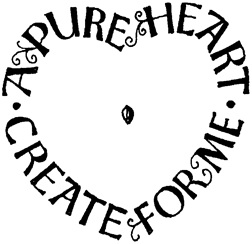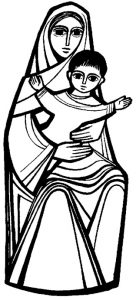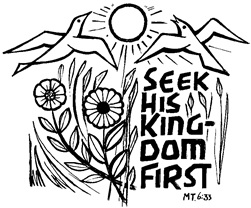Link to the video reflection: https://youtu.be/CraEPirxOpw
James 1:17-27, Mark 7:1-8, 14-15, 21-23
In the name of God, Father, Son and Holy Spirit, Amen
In recent times, it has been easy to become a bit obsessive about washing our hands. Hands is first in the “hands, face, space, fresh air” Government slogan to combat COVID – 19. All things being equal – we all sanitised on entry to church buildings (and lots of others) for practical as well as pragmatic reasons. Primarily, to ensure that we are thoughtful, and mindful of others and we do this even though we may well have washed our hands before we left our houses!
We are not washing our hands because we think it brings us closer to God – or is necessary before we worship. This puts us at odds with the Pharisees who devised layers of religious ritual around washing hands for exactly that purpose of bringing them closer to God in their eyes. Did it work? – Jesus is suggesting quite forcibly here that it didn’t!
Life as a good Pharisee was pretty demanding. One was required to obey both the letter and substance of the Jewish law. A quick gander through the first five books of the Old Testament and the array of some six hundred laws show this was not an easy ask! Pharisees had to know, obey and apply all the traditions practiced too, that had been handed down from one generation to another, giving equal weight to them as to the law as laid down in the books of the Old Testament. Frankly – An awful lot to take into account!
Let’s just think about the Pharisee’s ritual handwashing and what was involved. First fill a special often 2 handled washing cup with enough water for both of our hands. If we are left-handed, begin with our left hand. If we are right-handed, start with our right hand. Pour the water twice on our dominant hand and then twice on our other hand. Make sure the water covers our entire hand up to the wrist with each pour and separate your fingers so the water touches the whole of our hand. Then dry your hands with a towel –whilst saying Blessed are you Lord, our God, King of the universe, who has sanctified us with His commandments and commanded us regarding the washing of the hands. Then we were supposed to not speak again until we had started eating!!! What startled me the most in all of this was the reality that it was also a prerequisite in the regulations that before they started all of this that hands had to be clean in the first place!
That all that ritual was not practical in the life Jesus and his disciples were living is obvious. It is pretty clear from the interchange between the disciples and the pharisees. For the pharisees all this ritual had become a stumbling block too. It was all about the ritual itself rather than what the ritual was supposed to do (i.e bring them closer to God). They had taken it to the next level, saying not doing the ritual defiled a person, which is a strong word meaning, mar, spoil, or make impure
We need to be careful with rituals we find helpful that they are doing what they say on the tin (and we are not getting caught up or caught out in hypocrisy as the Pharisees were). Jesus firmly calls them out on this. This people honours me with their lips but their hearts are far from me; in vain do they worship me, teaching human precepts as doctrines’.
We also in this and many other places need to be mindful of casting judgement, especially as harsh a judgement as was being meted out here! Judgement when it comes, is not ours but God’s perspective that matters.
Thankfully though our first reading which also addresses hypocrisy, gives us some tonic and advice in how to do better in our walk with God. James picks on a number of things to help us: –
Generosity being the first. I have on a number of occasions been overwhelmed by generous hospitality of my hosts, particularly in circumstances where very little is available. I particularly remember a trip to India and being invited to a lavish celebration. The hospitality was superb against a backdrop of very great poverty and relatively having very little indeed. The abundant generosity made me think at the time, and I have often reflected on it. The language James uses is that every generous act comes down from the Father of Lights. That this is God’s work – lighting up our hearts and lives and sharing that light with others – It is a powerful image and an object lesson in how to live graciously and gracefully.
The second thing James encourages us to do is to be quick to listen. Listening is much underrated in today’s world. It is important to attend carefully to what is being said and what is really being said. Listening attentively can make a huge difference in our communications. It can reduce misunderstandings and give us better insights. James equates this with being slow to speak too! We live in a very noisy world right now. We have the right to speak and be heard, but often there is a lot of speaking going on and precious little listening or hearing especially online – where the media encourages us to monologue – meaning just say what we think! What helps us so much more is proper dialogue. A conversation where people speak but also where people listen and really hear what is being said.
A third thing that James exhorts us to Is to be doers of the word – to let what God wants of us to filter out into our actions. Faith is not an academic exercise – and what we need to think, but about how our lives are lived and what our lives actually look like. Do they demonstrate our faith to those around us? The example James uses is an interesting one about looking at ourselves in a mirror. It describes someone who is just hearing but not doing as like someone who looks at themselves in a mirror and then immediately forget what they were like. It as if the individual leaves no impression in the mind. If actions do not accompany words…..
James also makes the point that God will bless the people in their doing. Over and over and over again, I have seen this being the case. My experiences says in serving God, and doing what he wants for us, we gain far more than we give in the first place. God’s economy is about flourishing for us and God’s overflowing generosity. Several times we will remember acts of Jesus where the response was overflowing, like in the feeding of the five thousand with 12 baskets left over or when vastly more high quality wine was made at the wedding in Cana. God doesn’t do things by halves and we shouldn’t either
 It is worth us living our lives through generosity, listening carefully and doing what God wants of us. All of that will help us to steer clear of hypocrisy that so beset the Pharisees of Jesus’ day. Where Jesus ended our gospel reading was asking us to look at the motivations of our hearts and for purity of intention there. Just to recap – it wasn’t about what’s on the outside that matters or any amount of ritual we might do!! Jesus said it was all about having a heart that was clean. It’s all about what’s on the inside, and particularly it’s what comes out, from the inside, from our hearts that matters. Amen.
It is worth us living our lives through generosity, listening carefully and doing what God wants of us. All of that will help us to steer clear of hypocrisy that so beset the Pharisees of Jesus’ day. Where Jesus ended our gospel reading was asking us to look at the motivations of our hearts and for purity of intention there. Just to recap – it wasn’t about what’s on the outside that matters or any amount of ritual we might do!! Jesus said it was all about having a heart that was clean. It’s all about what’s on the inside, and particularly it’s what comes out, from the inside, from our hearts that matters. Amen.
The New Revised Standard Version (Anglicized Edition), copyright 1989, 1995








